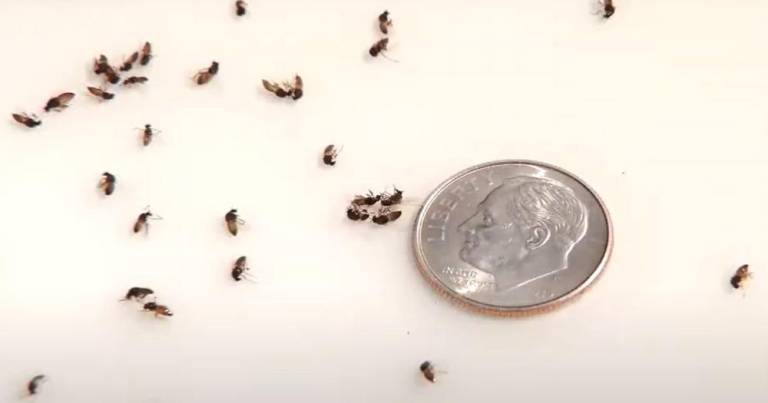DEP begins seasonal black fly suppression
Environment. The black flies, also known as biting gnats, can be a nuisnace around waterways.

The Pennsylvania Department of Environmental Protection (DEP) has begun its 2024 Black Fly Suppression Program, monitoring and treating 48 rivers and streams spanning more than 1,800 miles.
“As the weather turns warmer, Pennsylvanians will be spending more time outdoors, and black flies (biting gnats) are a pest that can make being outside a lot less fun,” said DEP Acting Secretary Jessica Shirley. “This annual treatment program reduces this nuisance so that Pennsylvanians and visitors can fully enjoy outdoor activities.”
The program involves aerial and backpack spraying. Spraying activities will be performed both by helicopter and ground crews. Helicopter treatments involve aircraft flying low over waterways and dispersing treatment material that looks like chocolate milk.
DEP uses Bti, a naturally occurring bacterium, to treat the larval stage of four specific black fly species. This bacterium degrades quickly in the environment, is not toxic to fish, and does not harm the aquatic ecosystem, humans, birds, or other insects. The frequency of the treatments will depend on weather and biological conditions. Treatments cannot occur during periods of heavy rain or when water levels are high as these conditions lower the effectiveness of the treatment and significantly increase the cost of the control operations.
Prior to any spraying activity, DEP notifies county and local emergency management officials. Helicopters can be seen flying over waterways and ground crews using backpack sprayers off of bridges and wading in streams to conduct control operations on behalf of DEP’s Black Fly Suppression Program. Anyone concerned at the sight of helicopter or ground personnel is encouraged to call their county emergency management office to verify that a black fly treatment is taking place in their area on that day. Spray notifications can also be found on the DEP’s Vector Management Program page and clicking the 2024 spray events link. This schedule is subject to change depending on weather and water conditions.
For more information, visit dep.pa.gov.